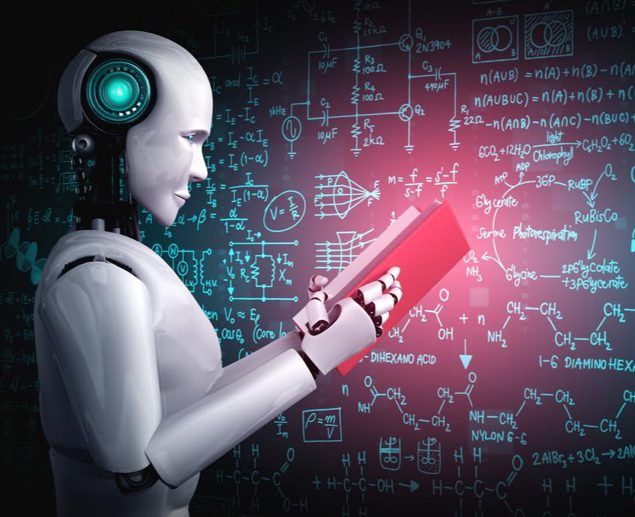The world is revolutionising, and with the minimum of human resources, maximum output can be gained through artificial intelligence. Whatever field you explore, whether it is related to public health, manufacturing, transportation, or tourism—even in education—the contribution of artificial intelligence to the progression and development of these fields cannot be denied.
What Is Artificial Intelligence?
Artificial intelligence means the simulation of human intelligence—perceiving information, processing it, and producing a desired result—in machines. AI is a processed form of human traits, as it uses human cognition for learning reasoning, problem solving perception to complete the task.
There are various forms of artificial intelligence:
- Web search engines, e.g., google
- Recommendation system, e.g., in YouTube
- Self-driven automobiles, e.g., Audi, Tesla
- Speech command systems, e.g. Alexa
- Creative and generating systems, e.g., ChatGpt
- Decision makers
Impact Of Artificial Intelligence On Various Fields
There are two camps in the world: those who support artificial intelligence and those who oppose it.Well, it is an ever-ending debate.
No, let’s find out the potential benefits or drawbacks of having AI in the given fields:
- Healthcare
Pros :
- Improve speed and accuracy: Day-to-day patient record maintenance is made easy due to artificial intelligence.
- Aid in surgery: Certain robots also help medical practitioners during surgeries.
- Medical research: Artificial intelligence cuts short the time of reading, gathering, and organising the data from all sources for research.
- Remote patient monitoring: Many smartwatches have developed that send a signal to a physician if there is something wrong with his patient’s health.
- Reduce medical errors: It can minimise the risk developed due to drug-to-drug interactions and drug-to-food interactions.
Cons :
- Lack of trust: Medical practitioners find it hard to fully rely on artificial intelligence as any error has a direct impact on patient health.
- Ethical and privacy concerns: Artificial intelligence can be misused to grab patients’ data and use it unethically, making it less friendly in the health care profession.
- Biassed results: As AI operates on algorithms, any bias in them will lead to discrimination in results.
- Education
Pros:
- Personalised learning: Each student can learn a topic according to his own needs, irrespective of following a fixed schedule.
- Adaptive learning: Students will get information according to their level. As if he requires advance information on some topic or a basic one to start that topic.
- Student analytics: It helps teachers monitor the students’ performance and can counsel the student timely if he sets out of track.
- Remote learning: Through different applications, it is easier to have recorded or live lectures from profound teachers across the world.
- Administration tasks: AI can make class schedules, grade routine assignments, and design a questionnaire, which will save time for teachers.
- Chatbox to resolve queries: Students can resolve its queries by simply asking questions of artificial intelligence.
Cons:
- Dependency: Excessive reliance by students on AI affects their critical thinking and turns their independent problem-solving nature into a dependent one.
- Cost: AI in education is costly, and many institutions, especially in third-world countries, cannot afford it.
- Finance
Pros:
- Fraud detection: It can detect fraud in financial transactions by analysing patterns and abnormalities in the data.
- Trading: It will perform automated trading, reducing human error.
- Predictive analytics: It can save industries from potential losses by analysing patterns, risk factors, and losses in the market and warning them before time.
Cons:
- Lack of transparency: Artificial intelligence is difficult and hard to interpret how it makes decisions, making it less user-friendly.
- Data quality: Artificial intelligence needs high-quality data to work, but in the finance industry, data can be irregular and inconsistent, which makes it difficult for AI to work on it.
- Manufacturing
Pros:
- Quality control: It helps us ensure the quality of the product during manufacturing, packaging, and transportation, until it reaches the end user.
- Supply chain optimisation: It will check the stock in demand, shipping times, and inventory maintenance for the smooth and efficacious flow of industry.
- Safety: It will point out potential hazards at work to ensure a safe working environment.
Cons:
- Expensive: The implementation of AI in manufacturing requires significant investment in software, hardware, and structure. Thus, small and medium-sized companies may not be able to afford it.
- Lack of flexibility: AI works on a specific algorithm, having no sense of creativity in it. Thus, any change in product design or adaptability to counter a certain problem is not done by it.
- Security concerns: Hackers can take control of machines and seize sensitive data through them to produce negative results.
- Tourism
Pros:
- Tour guide: It will minimise the need for hiring a personal tour guide that will explain the history and importance of a specific place. Artificial intelligence is capable enough to provide you with all this information.
- Personalised travel: You can have a personalised travel plan based on your interests, past experiences, and demographics through AI.
- Trend analysis: Artificial intelligence helps individuals or companies analyse trends and implement them in their next travel plans.
Cons:
- Technical difficulty: Any technical error in artificial intelligence will lead to severe consequences in tourism, i.e., loss of direction, cancelled bookings, biassed information, etc.
- Lack of personal interaction: Tourist and human interaction is the essence of tourism, and through artificial intelligence, it is lost.
- Loss of job: It leads to fewer job opportunities in the field of travel guide, as artificial intelligence will perform their job.
Conclusion
Though humans are developing artificial intelligence, it still needs human guidance and supervision to work efficiently. Thus, the problem does not lie in AI; we should change our way of working. If AI provides some support, accept it and utilise it in a positive manner for a more productive result.
Read more: Top 8 Advantages Of Remote Work: Why Is Working From Home Becoming More Popular?


